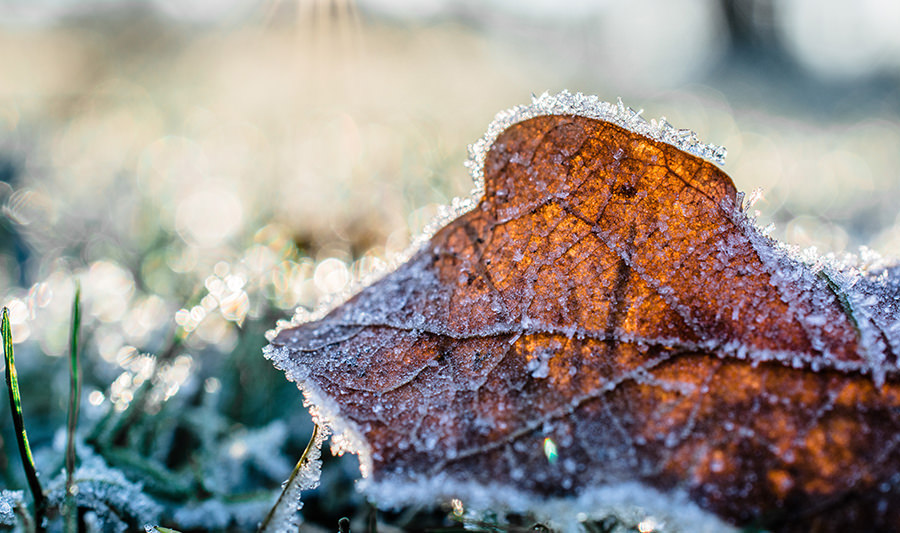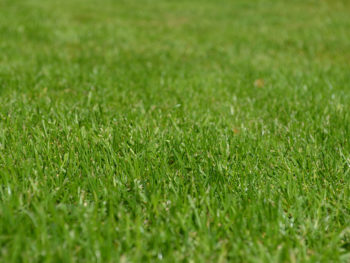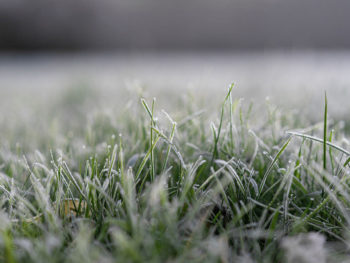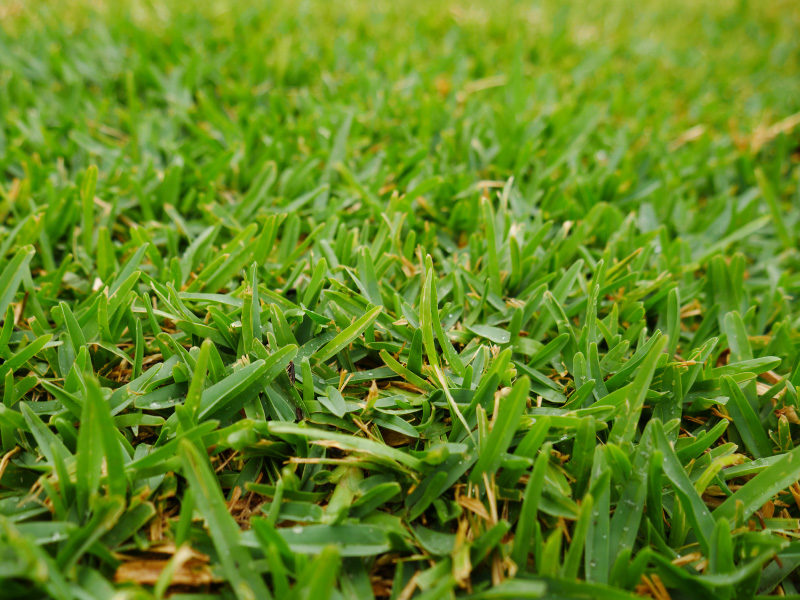The shorter days, chilly mornings and cold winter winds have arrived, leaving our lawns looking a little worse for wear. While the cold days may not be conducive to spending time in the garden, a little bit of effort now can save you a lot of hard work when spring rolls around and the lawn begins to wake up, so don’t be put off by the cold weather. It can be invigorating to get outside and can do wonders for your physical and mental wellbeing. Your lawn will thank you as well. Here’s what you need to do for your lawn as winter takes hold.
Clear up leaves, twigs, sticks and bark
With the onset of cold winter winds, lawns often develop an accumulation of twigs, sticks and bark over winter, as well as drifts of fallen leaves. It’s not ideal to leave these to settle on the lawn, as they can prevent sunlight from reaching the grass, causing it to rot. With winter’s shorter days and reduced amount of sunlight, the lawn can sometimes struggle to photosynthesise nutrients effectively if it’s not getting enough sun. Use a leaf blower to clear the leaves and add them to your compost heap, and rake up bark, small twigs and leaves for mulch. Also, trim back shrubs and trees which overhang the lawn, to ensure maximum sunlight for the grass during winter.
Aerate the lawn
Lawns can often become compacted and weedy after the harsh conditions and excessive foot traffic of summer, so it’s a good idea to aerate your lawn over the cooler months so it will thrive when spring arrives. Use a garden fork or powered aerator to agitate and break up the soil, allowing for grass roots to grow and water to penetrate. Follow this with a top dressing of coarse sand or loam. If rain is sitting on the grass and not soaking in, even after aeration, use a hose-on soil wetting agent to help your lawn receive the moisture it needs.
Feed the lawn
Lawns can and should be fertilised in winter, particularly here in Australia where most lawns never really go into a full state of hibernation. Lawns can make good use of the correct fertiliser applied at the correct time and will stay stronger, greener and more resistant to the effects of cold weather. Treat your lawn with a winter fertiliser which is high in iron, to help keep it healthy during the chill.
Mowing
While the grass will experience a slow down in growth during the colder months, it’s important to still mow occasionally in winter to keep the grass trimmed and reduce the build-up of debris. In cooler winter weather, it’s better to mow with your catcher on, as mulch-mowing can cause fungal problems as the colder weather makes the grass clippings much slower to break down. When mowing, leave your lawn a little longer than usual, as this will enable it to cope better with cooler conditions, and ensure it will have good blade length for maximum photosynthesis during shorter days.
Now is also a good time to have your lawn mower serviced and in tip top condition for when it’s most needed during summer.
Remove weeds
Weeds often establish themselves strongly during winter when the lawn is at its most vulnerable and can’t out-compete the weeds very well. Wintergrass is a common problem that may pop up in your lawn during the colder months. If you don’t deal with it now, it will die down when warmer weather arrives but will leave seeds that will ensure this problem will return next year. You can weed small patches of wintergrass by hand, or use a chemical control to get rid of this pest. Keep in mind that even good quality selective herbicides can cause your lawn to undergo a lot of stress in winter, so keep these as a last resort.
Likewise, for other types of weeds, dig them out by hand if there’s only a few; but for more serious weed infestations, try a weed wand with roundup (touching the weeds only), or an all-purpose weed control product specifically designed for lawns. Talk with an expert at Horsham Turf about the right weed treatments for your lawn.
Water wisely
Make sure you don’t overwater the lawn in winter, because a wet lawn can rot when it’s cold. You will need to reduce your lawn watering time to half or less of the amount you provided in summer, to prevent waterlogged and rotting soil. It is especially important to make sure you water the lawn in the morning during the winter months, as water left on the lawn at night can freeze, causing damage. The general rule of thumb is to water minimally in winter, but keep checking your lawn to ensure optimal results.
Follow these steps, and with a bit of effort and care, your lawn should soon be primed to sail through winter and emerge unscathed into the next growing season.





 Do’s and don’ts of watering your lawn
Do’s and don’ts of watering your lawn
